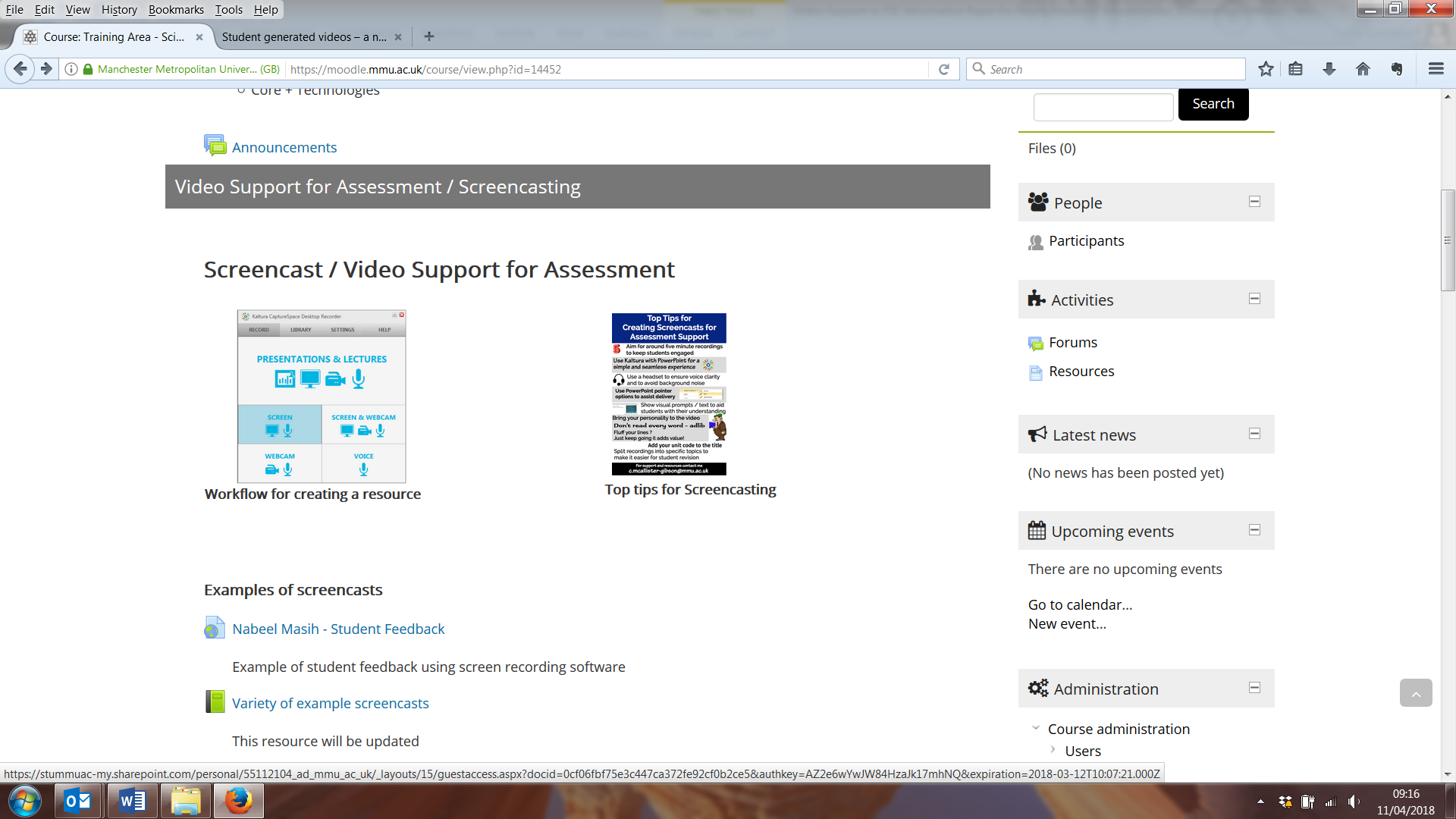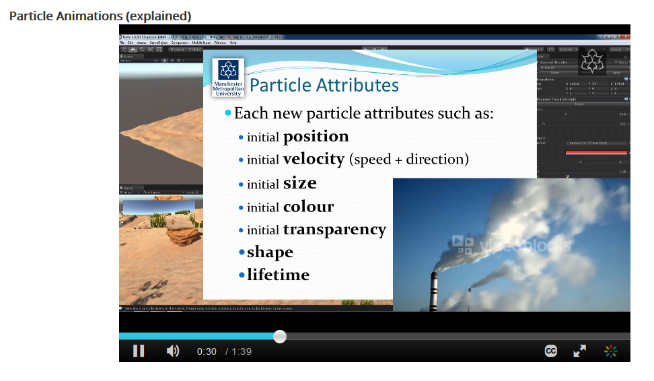The what and why of video support for Teaching and Learning
Short videos/screencasts (aim for 5 minutes max) are really helpful for students and staff alike in terms of raising teaching quality, reducing staff workload (as all students have access to your one best explanation), and students really like them.
They don’t need to be professionally produced or edited or take a long time to make – especially if you use pre-prepared powerpoints/pdfs/images rather than writing or drawing live. And ask for help from your Faculty TELA to get you started
The types of topics that are particularly suitable for video are
- Revision tips
- Exam paper explanations
- Resit paper explanations
- Coursework guidance and tips
- All class coursework feedback
- Solutions to tutorial problems
- Core concept videos (short explanations of the key concepts that students must grasp to succeed on your unit)
My advice, from having produced lots of videos for UG/PGT and distance learning programmes, is to build your video resources incrementally and in alignment with your unit pedagogy – starting with exam question model answers/explanations and revision tips and then moving down the list from there. And, be sure to signpost your students to the videos both in class and on Moodle.
Tips for successful implementation at Department, School or Faculty level
- An engaged and proactive F-PVC/ Head of Department
- A responsive, experienced and proactive TELA who is willing to sit with individual academics to help them record their first video
- Start small and build resources incrementally – start with revision tips, examination feedback and model answers, and coursework briefings as these have greatest impact on student performance
- Make it easy for academics to generate video resources and hard for them not to. For example we have provided individual places in each school where academics can go to record their videos, and our TELA, Colin McAllister-Gibson, has provided an amazing level of support (both hardware such as headsets, and time with individual academics).
Moodle resource page in the Faculty of Science and Engineering
Impact on student attainment (Data from F-PVC Professor Andy Gibson)
 Links to prior research
Links to prior research
Carmichael, M. , Reid, A.K. and Karpicke, J.D. ( 2018) Assessing the Impact of Educational Video on Student Engagement,
Critical Thinking, and Learning: The Current State of Play. A SAGE White Paper. Available to read here
Gillie, M., Dahli, R., Saunders, F.C. and Gibson, A. (2017) Use of rich-media resources by engineering undergraduates. European Journal of Engineering Education. 42,6, p1496-1511 https://www.tandfonline.com/doi/full/10.1080/03043797.2017.1306488
Saunders, F.C. & Hutt, I. (2014) Enhancing large-class teaching: a systematic comparison of rich-media materials. Higher Education Research and Development, 34,6 p1233-1250 https://www.tandfonline.com/eprint/QXF4XcRHbtHaGs4BeZSD/full
Useful Blog Posts for Further Ideas for video (apologies that examples all come from UoM)
Resources and Tools for producing Video for Teaching and Learning
http://fionasaunders.co.uk/resources-and-tools-for-producing-video-for-tl/
Student Generated Videos: A novel way of reinforcing core-concepts
http://fionasaunders.co.uk/student-generated-videos-a-novel-way-of-reinforcing-core-concepts/
Exemplars from the Faculty of Science and Engineering
https://mmutube.mmu.ac.uk/media/Tutorials+Assignment+1/1_8jjp2bq4 Assignment Briefing explanation from Human Geography. In this exemplar the unit leader is talking through the assignment brief in order to give the students more information about what is required for the coursework.
https://moodle.mmu.ac.uk/mod/page/view.php?id=1583417 Core concept video from Computing, Maths and Digital Technology. In th is exemplar the academic is talking through the concept of particle animations.
https://moodle.mmu.ac.uk/course/view.php?id=86385 (see in Class test information from term 1) Explanation of exam solutions from Mathematics Fundamentals. In this final exemplar, the academic is working through the solutions to this in class test line by line, simultaneouly writing on the test paper and talking through the solutions.
Acknowledgements
My thanks go to Colin McAllister-Gibson and Dr Lida Nejad for their support and commitment to this project during 2017 and 2018.





nice thanks